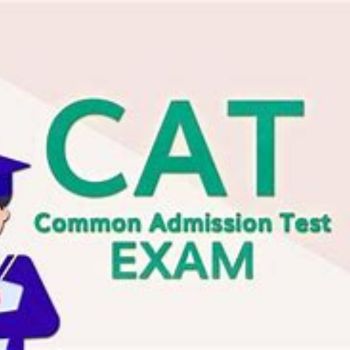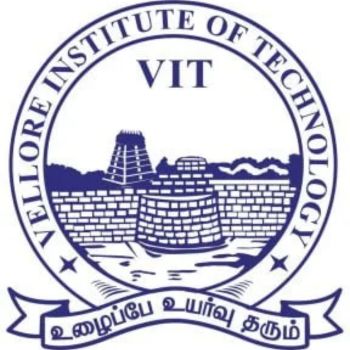MS. Electronics and Communication Engineering has a 2-year postgraduate thesis-based (or course work with thesis) program, usually spread over 4 semesters. The program aims to increase knowledge in subjects such as digital electronics, signal processing, embedded systems, wireless communications, VLSI design, IOT and microwave engineering. The program emphasizes theoretical knowledge and research on developing hand skills.
To be eligible for M.S in electronics and communication engineering, applicants have to wear B.E./B.Tech. degree in related discipline with at least 55–60% marks. Admissions are usually based on entrance exams like GATE or university-specific entry tests.
The fee for studying this course in India ranges from INR 1,00,000 to 4,00,000 on the basis of college. The top colleges providing this course are International Institute of Information Technology (Hyderabad), National Institute of Technology.
MS. Graduates in ECE can be employed as electronics engineers, embedded system developers, RF engineers, signal processing analysts, chip design engineers or R&D Scientists. They work in industries such as telecommunications, aerospace, robotics, defense, semiconductors and consumer electronics. The average initial salary is between INR 6 to 10 LPA, while experienced personnel reach INR 15-20 LPA depending on expertise and domain.
Table of Contents
- M.S Electronics and Communication Engineering Key Highlights
- What is a M.S Electronics and Communication Engineering?
- Why Study M.S Electronics and Communication Engineering?
- Who should study M.S Electronics and Communication Engineering?
- M.S Electronics and Communication Engineering Eligibility Criteria
- M.S Electronics and Communication Engineering Entrance Exams 2025
- M.S Electronics and Communication Engineering Colleges
- M.S Electronics and Communication Engineering Admission Process 2025
- M.S Electronics and Communication Engineering Syllabus
- M.S Electronics and Communication Engineering vs. M.Tech in VLSI Design
- M.S Electronics and Communication Engineering Job Opportunities in India
- M.S Electronics and Communication Engineering FAQs
M.S Electronics and Communication Engineering Key Highlights
Below are the key highlights of the M.S Electronics and Communication course in India:
What is a M.S Electronics and Communication Engineering?
M.S in Electronics and Communication Engineering (ECE) has a two -year advanced postgraduate program designed to promote expertise in electronic systems, signal processing, wireless communication and integrated circuit design. The course is ready to offer both theoretical depth and hands-on research experience, which can enable students to solve complex engineering problems using next-generation technologies such as IOT, 5G, VLSI, Embedded Systems and Microwave Engineering.
The program aims to develop industry professionals with a strong understanding of communication protocols, digital system designs and real-time embedded applications. Unlike traditional engineering programs, M.S ECE often emphasizes innovation, research and product development, and prepares students for high-impact roles in R&D, aerospace, defense, telecommunications and semiconductor industries. Whether it is developing a chipset or designing communication architecture, graduates of this program are important in shaping electronics solutions ready for the future for more connected systems.
Why Study M.S Electronics and Communication Engineering?
There is a research-based advanced course MS. in electronics and communication engineering that prepares students for state-of-the-art positions in ECE and semiconductor areas. The following are the reasons that someone gets the M.S Ece course:
- Electronics and telecom industries require a huge job requirement: IOT, AI, 5G, and due to the growth of embedded systems, electronics and communication engineers are in high demand all over the world.
- Various job roles: Students can carry forward jobs like embedded system developer, RF engineer, VLSI design engineer, signal processing analyst, chip designer, and IOT Architect.
- Career Stability and Development: M.S degree provides rapid entry into R&D laboratories, core engineering firms and academics, which provides career advancement in technical and managerial routes.
- Quality compensation: ECE professionals are provided with a high quality package, especially in semiconductor companies, aerospace, defense and telecommunications, with the possibilities of an international career.
- Entrepreneur orientation: The program cultivates creativity in electronic product design and communication systems, enabling students to start their own startups or work on hardware/software technology solutions.
Who should study M.S Electronics and Communication Engineering?
MS. Electronics and Communication Engineering is one of the most modern degrees for students who want to pursue their careers in the core electronics, telecom or embedded system sector. It promotes innovation and merit in high-end technologies. The following are the best candidates who are M.S In electronics and communication engineering courses:
- Those who are willing to seek jobs as designers or system engineers in semiconductor companies, telecom companies, or defense ministries.
- Those who are interested in trying hand -embedded systems, signal processing, VLSI, robotics and 5G networks.
- Candidates interested in a good payment career in research career and technology innovation, aerospace and IOT.
- Future students who Ph.D. Or career in innovative electronics product development.
- Those who are interested in creating innovative solutions in wireless communication, intelligent systems and digital infrastructure.
- People who are excited about the creation of the world in the areas of electronics, automation and connectivity solutions.
M.S Electronics and Communication Engineering Eligibility Criteria
The eligibility criteria for pursuing Master of Science in Electronics and Communication Engineering (ECE) in India typically include:
- A Bachelor's degree in Electronics and Communication Engineering, Electronics, Physics, or related science/engineering fields from a recognized university.
- Minimum aggregate marks of around 55% in the qualifying bachelor’s degree (this may vary by institution).
- Some colleges may accept candidates with a B.Sc. degree in Electronics, Industrial Electronics, Instrumentation, Biomedical Instrumentation, Information Science, or Computer Science, subject to fulfilling minimum marks.
- Admission is generally through entrance exams like GATE, or CUET PG, which may also include personal interviews.
- Final year bachelor's students may also apply provisionally, subject to meeting the eligibility criteria at admission.
M.S Electronics and Communication Engineering Entrance Exams 2025
For pursuing a M.S Electronics and Communication in India, various national/state/university-level entrance examinations are required to be taken. Colleges and Universities in India offer admission depending on the marks or rank obtained in these examinations. Some of the top M.S Electronics and Communication entrance examinations in India are given below:
Click to read more about M.Tech in Electronics and Communication Engineering (ECE)
M.S Electronics and Communication Engineering Colleges
Various institutions in India are offering M.S Electronics and Communication courses; each institute has got some entrance exam criteria for admitting students. Some of the top M.S Electronics and Communication colleges in India have been mentioned below, along with their total course fee, NIRF Ranking, and entrance exams required for admission:
M.S Electronics and Communication Engineering Admission Process 2025
The process of admission for entering M.S Electronics and Communication Engineering at IIIT-Hyderabad is as follows:
Step 1: Visit the official website IIIT-Hyderabad PGEE and register online by filling in individual, educational and contact details.
Step 2: Upload necessary documents such as (photo, academic documents and ID documents) and remit the application fee for PGEE (Postgraduate Entrance Exam), usually INR 2500.
Step 3: IIIT-Hyderabad exams are (usually in April). Appear for the PGEE entrance examination. The examination has general qualifications, mathematics and technical core subjects related to ECE.
Step 4: Shortlisted applicants based on the PGEE score are invited for an interview (conducted in May–June), during which research interest, academic achievement, and problem-solving capacity are assessed.
Step 5: Provisional admission is later offered to the provisionally selected candidates. To accept the proposal, log into the portal and pay the entry fee first to reserve your place.
Step 6: Physical appearance in IIIT-Hyderabad (or online document verification, if facilitated) for basic document verification and submission.
Step 7: Pay the remaining tuition fees based on the institute fee schedule and academic calendar. Once the payment is confirmed, the entry is confirmed and the course schedule is published.
Required Documents:
- 10th and 12th mark sheets
- Undergraduate (B.E./B.Tech.) degree certificate and semester-wise mark sheets
- Valid ID proof (Aadhaar/PAN/Passport)
- Transfer certificate or migration certificate
- Character certificate from the last attended institution
- Medical fitness certificate
- Category certificate (SC/ST/OBC-NCL/EWS) – if applicable
- GATE scorecard (if applying through GATE, optional for PGEE route)
M.S Electronics and Communication Engineering Syllabus
The syllabus for M.S Electronics and Communication in India is more or less the same in the colleges offering the course. The syllabus may slightly differ depending on the curriculum followed by the institute. For reference, the syllabus for M.S Electronics and Communication at IIIT-Hyderabad is given below:
Also read about, MTech Microelectronics and VLSI Design
M.S Electronics and Communication Engineering vs. M.Tech in VLSI Design
M.S Electronics and Communication Engineering (ECE) and M.Tech in VLSI Design are both postgraduate courses in electronics but vary in scope and application. M.S ECE is R&D in a broad area of communication and embedded systems, ideal for those who have innovation aspirations, product development, or a PhD. M.Tech in VLSI Design, on the other hand, is chip architecture and hardware-level solutions oriented, ideal for those who desire to approach semiconductor giants and IC design companies. Both are excellent career options but suitable for different aspirations—research or design specialization.
M.S Electronics and Communication Engineering Job Opportunities in India
M.S Electronics and Communication graduates can have job roles in multiple fields including, Embedded Systems Engineer, VLSI Design Engineer, Electronics Design Engineer, RF Engineer, IoT System Architect, Research Scientist (ECE), Telecom Infrastructure Head, and others. Some of the common job roles for M.S Electronics and Communication graduates in India are given below:
M.S Electronics and Communication Engineering FAQs
What kind of projects M.S Students of electronics and communication engineering usually work?
Students work on state-of-the-art projects such as VLSI design, signal processing, embedded systems, wireless communication, IOT devices and robotics. Projects are simulation tool-based and hardware interfacing, making students capable of connecting theoretical principles to practical innovation in the actual world electronic system.
What are the career prospects after doing an M.S in Electronics and Communication Engineering?
Graduates can get employment as an embedded system engineer, communication system analyst, R&D engineer, VLSI design engineer, or wireless network architect. They work in core tech firms, semiconductor companies, telecom organizations and government research institutes such as ISRO and DRDO.
What is the difference between M.S in ECE and M.Tech in the same subject?
Although both are postgraduate degrees in electronics and communication, MS. It is usually more research-oriented with a thesis element, which is best suited for students planning for PhD. or an R & D post. M.Tech is more course-based and best for those who want to reach posts of industry directly after graduation.
Are international opportunities offered in the M.S in ECE program?
Yes, most universities have exchange programs, double degrees, or collaborative research studies with universities overseas. Students can also publish studies in foreign journals or make presentations at international conferences, gaining exposure to latest technologies and international academic levels.
What are the entrance exams needed for M.S in ECE in India?
Usually, admission is given on the basis of tests like GATE (for research-oriented M.S programs in IITs/NITs), and a few private or deemed universities have their own examinations or accept national-level exam scores. A good academic record and research proposal also play a crucial role in a few institutions.
What technical skills or tools are imparted in the M.S ECE course?
Students become proficient in tools such as MATLAB, Simulink, Cadence, Xilinx, Verilog, HFSS, and LabVIEW. Hardware programming skills (FPGA/ARM), signal modulation, microwave engineering, network design, and machine learning applications to electronics are typically added.











